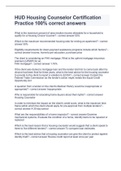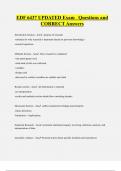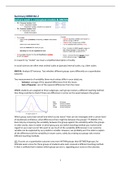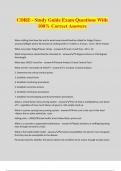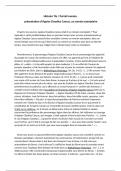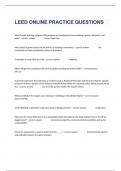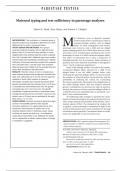IIO CLASS 2
https://s3-us-west-2.amazonaws.com/secure.notion-static.com/ce6328ff-7055
-4bbb-a0b7-cf5901a21f85/IIO_LECTURE_2.pdf
Recap
Characteristics of IO:
created by formal intergovernmental agreements;
at least 3 member states with regular meetings;
bureaucracy;
Categorization according to:
Membership: universal and regional;
Competence/mandate: general (such as the UN which has a very broad
mandate and all sorts of issues area are covered here) or issue-specific
(such as WB);
Function: rule-making (organizations are making rules themselves as an
example we have the UN that makes rules that other organizations or states
IIO CLASS 2 1
, have to implement) or operational (in this case the organizations or states
need to follow and apply certain rules);
Decision-making authority: intergovernmental (in this case states are placed
on the same level so authority is horizontal) and supranational (in this case
the state is delegating the sovereignty and the type of authority is vertical);
Three forces of IOs: Obligation (direct and indirect), compliance (to follow
the rules and that states are agreeing to the rules and this can happen
explicitly and implicitly) and enforcement (only a few organizations have total
enforcement, enforcement of organization more often happens indirectly,
through shame);
Three views on IOs in world politics: actors (make independent decisions
for themselves that the other states have to follow), fora (we reduce theme
to the concept of this arena in which the exchange of idea happens and
where decisions are made) and instruments (in this case IOs are conceived
as instruments of powerful states).
The great debates
1. Why do states cooperate, create and join IOs?
2. What is the role of IOs in world politics?
3. (Neo-) Realism
4. (Neoliberal-) Institutionalism
5. Liberalism
6. Social constructivism
7. Critical theories.
There are mainstream and non-mainstream approaches.
(Neo-) Realism and IOs
For realists the international system is anarchic, that means without superior
authority.
For realists, states are unitary actors because they all have the same interest that is
to advance their power which is determined by material elements such as the
economy or military. For realists IOs are instruments for (powerful/ hegemonic)
IIO CLASS 2 2

